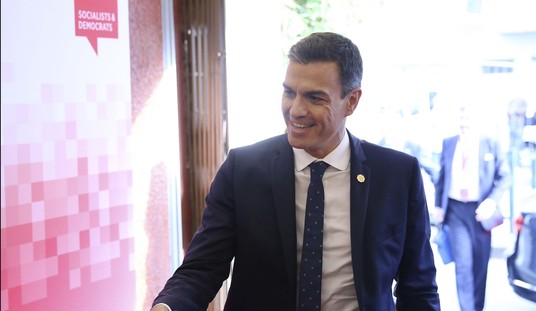Were the hacked e-mails from the DNC the moral equivalent of the Pentagon Papers? Did the American people have “a right to know” about the corruption in the Democratic primary process? Rudy Giuliani poses both questions — without necessarily fully buying into either premise — in a lively 18-minute interview with Chuck Todd on NBC’s Meet the Press yesterday.
At least we know this much … everyone wants to wring as much entertainment value out of the anti-climactic Mueller report as possible:
Rudy Giuliani, a lawyer for President Donald Trump, suggested Sunday that the American people had a “right to know” about the private Democratic emails released during a state-sponsored hack by the Russian government aimed at bolstering Trump’s 2016 election. …
He compared the hacked information to the Pentagon Papers, which shed light on controversy surrounding the Vietnam War.
“They shouldn’t have stolen it, but the American people were just given more information about how deceptive, how manipulative her campaign was,” Giuliani said. “I wonder if there isn’t an argument that the people had a right to know that about Hillary Clinton.”
This isn’t the most entertaining part of the interview, however, which we’ll get to in a moment. The difference between the Pentagon Papers and practically everything else Giuliani mentions is the fact that the Pentagon Papers came from … the Pentagon. They were a government work product, detailing falsehoods from the Lyndon Johnson administration about the US involvement in Vietnam, especially our actions in backing and then deposing Ngo Dinh Diem. Daniel Ellsberg exposed them illegally, but that information should have been disclosed all along, at least to Congress. Once the Washington Post published the material, it significantly changed the character of American support for the war.
By contrast, the DNC e-mails (and John Podesta’s at the Center for American Progress) were private communications. Only the most anarchic or most authoritarian arguments could be deployed in service to a “right to know” the contents of those communications. While both examples involve theft, as Giuliani points out, there is at least some moral difference between the two — as well as legal differences, although those play in the opposite direction. The penalties for stealing classified government information and exposing them are much harsher than the penalties for stealing private data.
That’s not the most entertaining exchange, however. It’s the debate between Giuliani and Todd over what happens after the theft — especially in the media:
CHUCK TODD: So it is now okay for political campaigns to work with material stolen by foreign adversaries?
RUDY GIULIANI: It depends on the stolen material. If the stolen material is — first of all, was it all right for The New York Times and The Washington Post to print against the objections of the president —
CHUCK TODD: You’re putting the Pentagon Papers and Vladimir Putin on the same level —
RUDY GIULIANI: No, the theft.
CHUCK TODD: — of morality?
RUDY GIULIANI: The theft. How often have newspapers and you covered stolen classified material?
CHUCK TODD: I hope not often.
RUDY GIULIANI: Well, you do. You do —
CHUCK TODD: I hope not often to be honest.
RUDY GIULIANI: You do, and you justify it. And actually, I don’t know if NBC was part of it, but the media went to court to defend doing that because it’s part of the public’s right to know. But I guess the public didn’t have a right to know how sneaky, how dishonest, and how dishonorable [crosstalk] Hillary and the people around her were and make your own conclusion about it.
This has been the moral debate all along. The issue isn’t theft, and it’s not Russian involvement either. The question is what do you do after the theft. If the material has already been disseminated, as Giuliani points out was done with the DNC and Podesta material, there’s not much point in being shy about using it.
Todd’s response that media outlets rarely report based on stolen classified material is outright laughable. Almost all internal government information worth repeating is at least covered by some kind of restricted status, and frequently is classified at least at low levels. Anonymous sources within government provide that information routinely, and media outlets report on it routinely, even when it rises to the level of interfering with legitimate national-security efforts. (Remember the New York Times’ exposure of the terror-finance tracking in the SWIFT network in 2006, which turned out to be perfectly legal?)
Media outlets can’t argue simultaneously that they don’t conduct reporting on the basis of stolen material and that they can’t operate without anonymous sources providing it to them. Giuliani’s correct in making that point. Sometimes they have good reason to do so, but other times not so much — and they get played by disgruntled sources more often than not.
For the most part, though, Giuliani and Todd argue past each other. That doesn’t make it worthless, although nothing really gets resolved except the skill in both men in dancing around the others’ arguments. That’s what makes it entertaining, far more so than Todd’s later interview with Jerrold Nadler, which resolved nothing either but provided nothing more than a reason to caffeinate heavily on an Easter Sunday morning.








Join the conversation as a VIP Member